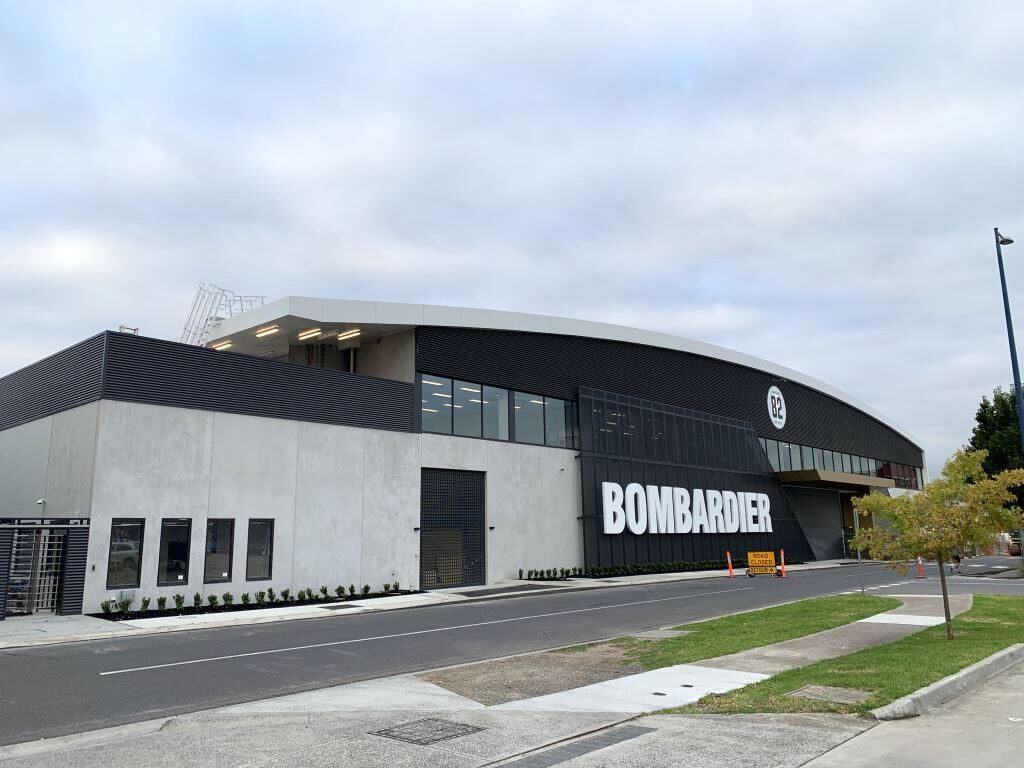
Second quarter earnings reports from Gulfstream, Embraer, and Bombardier—whose new Melbourne, Australia services center is pictured here—reported growth in demand for aftermarket services. (Photo courtesy of Bombardier)
Demand for aftermarket services from the world’s largest business jet manufacturers increased significantly between April and June, according to comments made by executives during recent earnings calls.
The increase in demand for services is primarily driven by the increase in the number of flight hours being flown by private jet operators. According to the latest report on global business jet flight operations published by WingX, business jet flying increased by 22% during the first six months of 2022 compared to the same period a year ago. That’s also an increase of 21% over the number of business jet flights that occurred during that same period in pre-pandemic 2019.
Bombardier published its second quarter earnings report this week that included $1.6 billion in revenue for the quarter reflecting 28 deliveries and “a 22% year-over-year aftermarket revenue increase to $359 million.”
“Our goal to reach $2 billion in annual aftermarket revenue by 2025 is fully on track,” Bombardier CEO Éric Martel told investors during an earnings call on Thursday.
The Canadian business jet manufacturer opened an expanded version of its service center in Singapore in June to meet the growth in demand for aftermarket services in the Asia Pacific region. Bombardier is also expanding its facilities in Miami and London and will open a new facility in Melbourne, Australia, later this year.
One of the ways Bombardier has also captured more of the demand for aftermarket services from independent maintenance and repair providers is by including SmartLink Plus on new in-production aircraft model to provide operators with a common digital infrastructure that captures and analyzes aircraft health, maintenance, and performance data in real-time.
Martel highlighted this feature of new Bombardier jets during the introduction of their new Global 8000 jet at the 2022 European Business Aviation Conference and Exhibition (EBACE), calling it the “digital evolution of services that lets our operators stay connected to the aircraft at all times.”
The Bombardier CEO wants to continue to expand the number of authorized aftermarket services facilities operated by the company in key regions to “bring more of our jets home.”

Gulfstream St. Louis, pictured here, is growing its workforce to increase services and production support. (Photo courtesy of Gulfstream)
Gulfstream has been involved in significant expansion of its aftermarket services facilities as well, including the addition of new avionics and cabin communications experts to a 24-hour support service operated at its Farnborough Service Center. The General Dynamics subsidiary opened a new service facility at Phoenix-Mesa Gateway Airport in March.
The company also announced a $55 million investment to add 200 new engineers, mechanics, and avionics technicians to its facility in Appleton, Wisconsin, according to a June 2 press release. New cabinet makers and finishers, upholsterers, aircraft paint technicians, and manufacturing engineers are among those being added to the growing workforce at Gulfstream St. Louis.
On July 27, General Dynamics released its second quarter results, with Gulfstream generating $1.9 billion in revenue. “Revenue was $245 million more than the year-ago quarter or 15.1%, largely as a result of higher service center sales at Gulfstream and higher service volume, particularly FBOs at Jet Aviation,” General Dynamics CFO Jason Aiken told investors during their earnings call last week.
Embraer also reported its second quarter earnings on Thursday, where the Brazilian business jet manufacturer’s executives noted they’re experiencing a similar increase in demand for services driven by the increased utilization of their business jet and regional airliner fleet. The company has also invested in significant expansion for several of its service centers, including doubling the useful area from “20,000 m² to 40,000 m²” at its Sorocaba Service Center in Sao Paulo in June.
“Revenues reached $1.90 billion in the quarter, down 10% compared to the second quarter of ’21, due to lower deliveries in commercial and defense segments, partially offset by our service and support business unit,” Embraer CFO Antonio Garcia said during Embraer’s earnings call on Thursday.